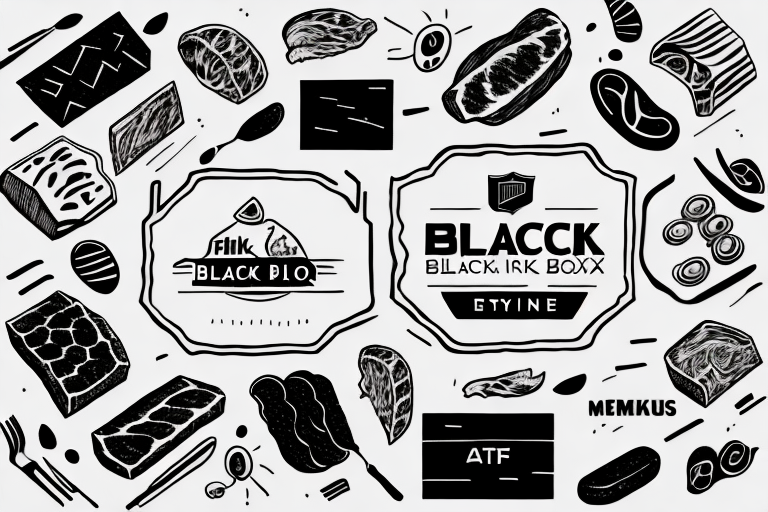Introduction to Black Box Meats
If you're looking to diversify your protein sources with a new kind of meat product, Black Box Meats might be the ideal choice. Although relatively unknown in some markets, Black Box Meats are gaining attention for their unique production methods and numerous benefits. This article delves into what Black Box Meats are, how they stand out from conventional meats, and the advantages they offer to consumers.
What Sets Black Box Meats Apart from Traditional Meats
Black Box Meats are distinguished by their innovative approach to animal husbandry and meat processing. Unlike conventional meat production, Black Box Meats prioritize animal welfare and environmental sustainability. Here's how they differ:
Humane Rearing Practices
Black Box Meats are raised in spacious, open-air environments that allow animals to move freely and engage in natural behaviors. This contrasts with traditional factory farming, where animals are often kept in cramped and stressful conditions. According to a study published by the Animal Welfare Institute, humane rearing practices can lead to better overall animal health and improved meat quality.
Antibiotic and Hormone-Free
One of the significant differences is the elimination of antibiotics and hormones in the raising of Black Box Meats. Usage of these substances in conventional meat production has been linked to various health concerns, including antibiotic resistance. The World Health Organization has highlighted the risks associated with antibiotic overuse in livestock.
Sustainable Farming Methods
The production process of Black Box Meats emphasizes sustainability. Farmers employ practices that reduce water consumption, decrease waste, and minimize carbon emissions. A report by the Environmental Protection Agency indicates that sustainable farming can significantly lower the environmental footprint of meat production.
Health Benefits of Black Box Meats
Choosing Black Box Meats offers several health advantages over conventional meat products. These benefits stem from the healthier rearing conditions and natural processing methods employed.
Higher Nutrient Content
Research shows that meats from healthier animals tend to have higher levels of essential nutrients. Black Box Meats are often richer in Omega-3 fatty acids and contain more vitamins compared to traditional meats, as supported by studies from the National Institutes of Health.
Lower Fat and Cholesterol
Black Box Meats are typically leaner, with lower fat and cholesterol levels. This makes them a healthier option for individuals concerned about heart health. According to the American Heart Association, reducing dietary cholesterol and saturated fats can lower the risk of cardiovascular disease.
Free from Harmful Chemicals
Without the use of antibiotics, hormones, and other harmful additives, Black Box Meats provide a cleaner and safer protein source. This reduction in chemical exposure contributes to overall better health outcomes for consumers.
Ethical and Environmental Advantages
Black Box Meats not only benefit consumers health-wise but also support ethical treatment of animals and environmental sustainability.
Animal Welfare
The welfare of animals is a cornerstone of Black Box Meats' philosophy. By ensuring that animals live in stress-free environments, the brand upholds high ethical standards. This approach aligns with consumer preferences for ethically sourced products, as highlighted by the People for the Ethical Treatment of Animals (PETA).
Reduced Environmental Footprint
Black Box Meats' sustainable practices significantly reduce the environmental impact of meat production. These practices include efficient resource use, waste reduction, and lower greenhouse gas emissions. A study from the Intergovernmental Panel on Climate Change (IPCC) emphasizes the importance of sustainable agriculture in fighting climate change.
Black Box Meats vs. Organic and Conventional Meats
When deciding between Black Box Meats, organic meats, and conventional meats, it's essential to understand the differences in production methods, nutritional value, and environmental impact.
Production Methods
While both Black Box Meats and organic meats prioritize the absence of antibiotics and hormones, Black Box Meats go a step further by implementing patented processes that enhance animal welfare and sustainability. Conventional meats, on the other hand, often involve intensive farming practices with routine use of antibiotics and growth hormones.
Nutritional Comparison
Studies indicate that Black Box Meats may offer superior nutritional profiles compared to both organic and conventional meats. Higher levels of essential nutrients and lower fat content make Black Box Meats a healthier option for consumers seeking quality protein sources.
Environmental Impact
Black Box Meats' commitment to sustainability results in a lower environmental footprint compared to both organic and conventional meat production. Their efficient use of resources and reduced emissions contribute to a more eco-friendly food system.
Incorporating Black Box Meats into Your Diet
Integrating Black Box Meats into your daily meals can be both delicious and beneficial for your health. Here are some tips on how to do so effectively.
Finding Quality Black Box Meats
Black Box Meats are available at select specialty grocers, farmers' markets, and online retailers. To ensure you are purchasing authentic products, look for certifications and verify suppliers through reputable sources such as the US Department of Agriculture.
Cooking Tips and Recipes
Because Black Box Meats are leaner, it’s important to cook them properly to preserve their tenderness and flavor. Opt for methods like grilling, baking, or slow cooking at lower temperatures. Additionally, pairing them with vegetables, whole grains, and healthy fats can create balanced and nutritious meals.
- Grilled Black Box Steak: Marinate the steak in olive oil, garlic, and herbs before grilling to enhance flavor.
- Black Box Meatballs: Combine ground Black Box Meat with breadcrumbs, herbs, and spices for a healthy twist on a classic dish.
- Stir-Fried Black Box Chicken: Slice the chicken thinly and stir-fry with a variety of colorful vegetables for a quick and nutritious meal.
Addressing Common Myths About Black Box Meats
Despite the many benefits of Black Box Meats, several misconceptions exist. Let’s debunk some of the most common myths.
Cost Comparisons
Many assume that Black Box Meats are significantly more expensive than conventional meats. However, when considering the health benefits and ethical advantages, the price difference is often minimal. Additionally, reduced health risks and environmental costs can translate to long-term savings.
Flavor and Quality
Another myth is that Black Box Meats lack flavor compared to traditional meats. In reality, the stress-free rearing conditions result in more tender and flavorful meat. Consumer reviews, such as those from the Consumer Reports, often highlight the superior taste and texture of these meats.
Availability Concerns
Some believe that Black Box Meats are not widely available, limiting their accessibility. However, the market for ethically and sustainably produced meats is growing, and availability is expanding through online platforms and specialty retailers.






















